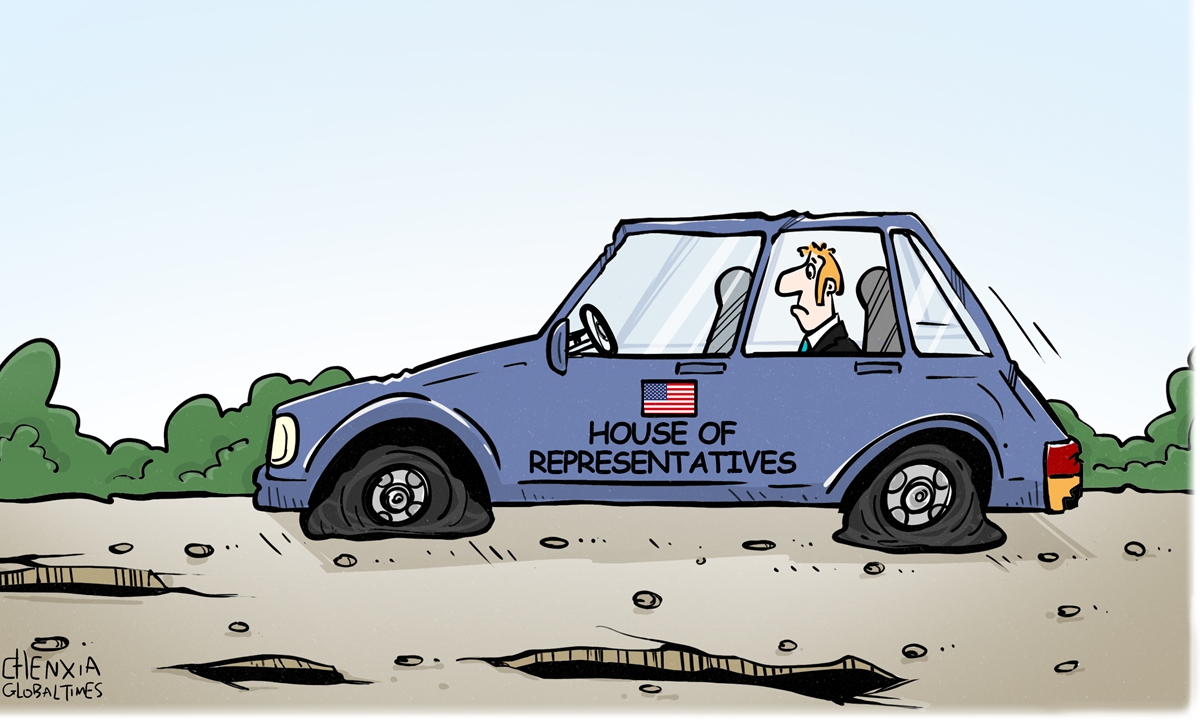LATEST INSIGHTS
Your Present Location: LATEST INSIGHTSDing Gang: House chaos: Congress becomes 'anti-China theater'
Source: GT Published: 2022-1-5

The difficult election for Speaker of the US House of Representatives is not a good thing for US-China relations.
The 118th Congress officially kicked off on Tuesday, and in the election for Speaker of the House of Representatives, Republican candidate Kevin McCarthy suffered a block. In the three rounds of voting that day, he failed to secure the 218 votes necessary to become a speaker.
The last such obstruction occurred in 1923, when it took nine ballots to elect a speaker.
This time round, it shows that US politics is still mired in a fierce struggle of "madness against madness." The drama that has been repeated and intensified in recent years in US politics is that the more intense the battle between the two parties, or among groups within a party, the more the "China threat" will become a topic of discussion, and the more anti-China proposals will be made. Some lawmakers will even use "China" to bargain under the table in order to secure the support of their opponents.
The reasoning is simple, because only through the topic of containing China is it possible for both parties to form a united front. This is not because China has really become the enemy that will destroy the US tomorrow morning, but because they can't reach a consensus on many US domestic problems, they can only use China to shift the subject. Therefore, the US Congress has become a highly rehearsed and staged "anti-China drama" theater.
An important factor affecting McCarthy's vote is that the Trump complex is still deeply influencing US politics. It was during Trump's administration that China-US relations turned from a slow climb to a sharp downward spiral. His policy toward China shows a strong and characteristic smell of "madness." Some people in the Republican Party do not support McCarthy, thinking that McCarthy is not supportive enough of Trump, and is too soft on the Biden administration. They also accused the Biden administration of not having a strong enough policy to target China.
McCarthy said in July that he would lead a delegation to Taiwan after his election as Speaker of the House. He and Representative Mike Gallagher (R-Iowa), chairman of the newly formed Select Committee on China, co-authored an article on the Fox News Website in December with the headline, "We're in a Cold War with China. Here's How We Win It." But that's not strong enough.
Five Republican lawmakers have formed a small group to oppose McCarthy's election, including Representative Matt Gaetz of Florida, who calls himself a "libertarian populist," but observers have often described his views as far-right.
Gaetz tweeted that he cannot trust President Joe Biden and Speaker Nancy Pelosi's strategy toward China, accusing them of being too soft on China and that the US must have a national strategy to punish China.
As a result, the positioning of China as an enemy of the US has become a potential, unwritten "rule of survival" within the US Congress. Thus, the more the two parties fail to agree on key domestic issues, the more they will saber-rattle on China. We can see from the anti-China programs that have been introduced in the US Congress in recent years that some people have lost their rationality in dealing with the China issue.
The US House of Representatives continues to vote on Wednesday, but no matter who is elected, it is clear that the overall attitude of the US Congress toward China will become more assertive in the future, and the White House's flexibility on China-related issues will be squeezed. The political polarization within the US will continually make it difficult to ease relations between China and the US.























































































 京公网安备 11010802037854号
京公网安备 11010802037854号





